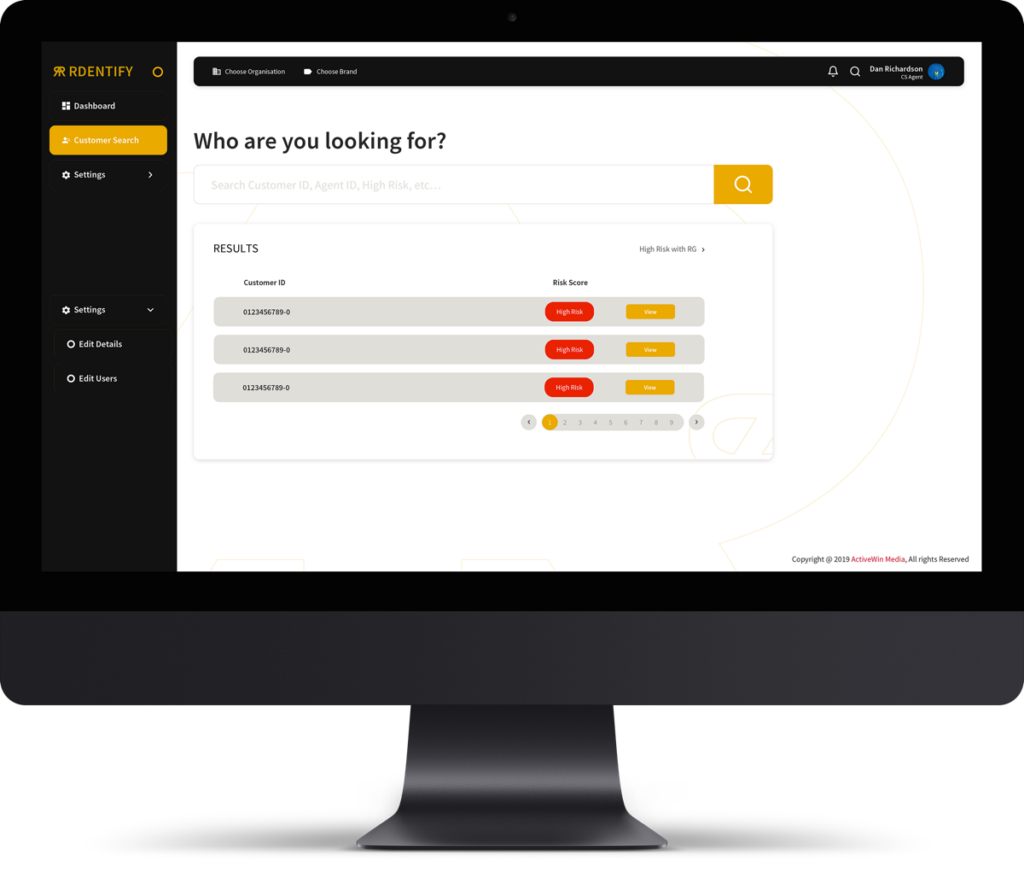Identifying customers who may be vulnerable or susceptible to harm can be a complex process. Each consumer is different, and operators cannot always be sure that an indicator of harm for one customer is the same for another. And in the fast-paced world of customer support and retention, common cues can often slip through the net.
However, when gambling firms offer tailored interventions that take individual financial and behaviour indicators into account, operators can respond to customer vulnerability much more effectively. As the Gambling Commission specifies, there is growing evidence that patterns of play and behavioural indicators are linked to risk, which can lead to problem gambling among vulnerable players. It’s therefore imperative that operators identify and monitor their customers to ensure they are protected from harmful play.
According to the Financial Conduct Authority, up to 1.2 million adults in Britain are classified as ‘problem gamblers’. This also has an effect on family members and friends, which means an estimated 3.1 million adults are directly affected by harmful gambling activities. And at a time when many consumers are finding themselves in vulnerable circumstances, it’s more crucial than ever for operators to take the welfare of their customers seriously.
What gambling-related harms are customers vulnerable to?
Gambling-related vulnerability can affect customers’ lives in numerous ways. It can impact decision-making and lead to poor outcomes, for the individual gambler and those around them.
As a result of harmful gambling, customers may:
- Lack perspective and be unable to see the ‘big picture’
- Have low interest and poor concentration on anything other than gambling
- Take excessive risks
- Have distorted views of money and debt
- Have poor judgement
- Experience heightened stress, anxiety and worry
- Experience related conditions such as mental health problems, alcohol or drug problems
Those who fall into the gambling target market (men aged between 18-34) are more likely to experience these issues. When these consumers are in a vulnerable situation, they may be less able to understand the full risks of gambling and the terms and conditions of each bet. This means they may be at higher risk of experiencing negative outcomes from gameplay.
Appropriate responses
If gambling operators are to respond to customer vulnerability effectively, they need to understand the extent and nature of gambling-related activity, and utilise this to alleviate risks to the consumer. But unfortunately, this knowledge is not consistently used to consider the position of the customer and undertake proportionate action.
Earlier this year, online gambling business Bonne Terre Limited, trading as Sky Betting and Gaming, was ordered to pay a £1.17m fine by the Gambling Commission. This came after the operator sent promotional emails to customers who had self-excluded or opted out of receiving marketing.
On 2 November 2021, the operator distributed a Sky Vegas promotional offer of “Bet £5 get 100 free spins” to 41,395 self-excluded customers and 249,159 customers who had already unsubscribed from the operator’s marketing emails.
It’s therefore clear that more work needs to be done to protect vulnerable customers from harm. Mistakes like these are costly both to the business and the consumer, and expose the inefficiency of responding to customer vulnerabilities in silo.
But it doesn’t have to be this way. As technology becomes sharper than ever before, we now have the agile tools and frameworks that can quickly respond to common vulnerability indicators, which gives gambling firms the opportunity to uphold their reputation as socially responsible operators.
And this is something we can help with here at Rdentify.

Protecting customers
With Rdentify, identifying and protecting vulnerable customers becomes second nature.
Our state-of-the-art platform uses NPL technology to spot indicators of problem gambling across numerous chats and agents. Rdentify flags end-user vulnerability risk during live chat interactions to detect and monitor vulnerable players, and prevent them from further gambling on your site.
Rdentify also allows gambling operators to identify vulnerable players looking for quick cash to prevent them from making fake claims online. For at-risk consumers, especially those who are struggling with self-exclusion, our software offers suggested automated customer journeys that ensure vulnerable gamblers are referred to the right support networks. This helps you prevent customers from spending or taking on debt that they can’t afford.
Our software seamlessly integrates with your current systems to provide clear, actionable scores and advice in real time. This means that customer service agents can identify risks quickly, and appropriately interact with vulnerable players. Customer service managers can then audit team live chats and emails to safeguard high-risk customers.
If firms want to deliver positive outcomes to vulnerable consumers, there needs to be clear protocols and tools in place. By harnessing the power of smart technology, operators can ensure that the right decisions are made for each individual player.
Support your vulnerable customers by booking a free demo with our team.

